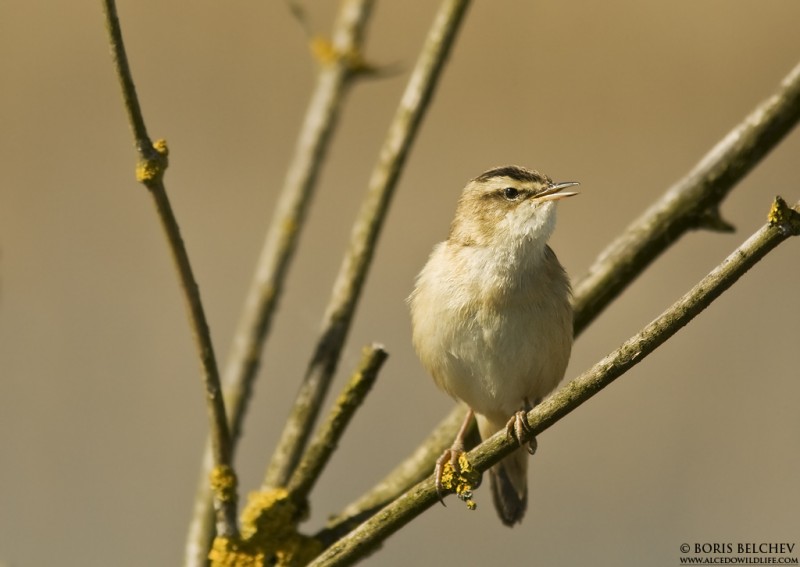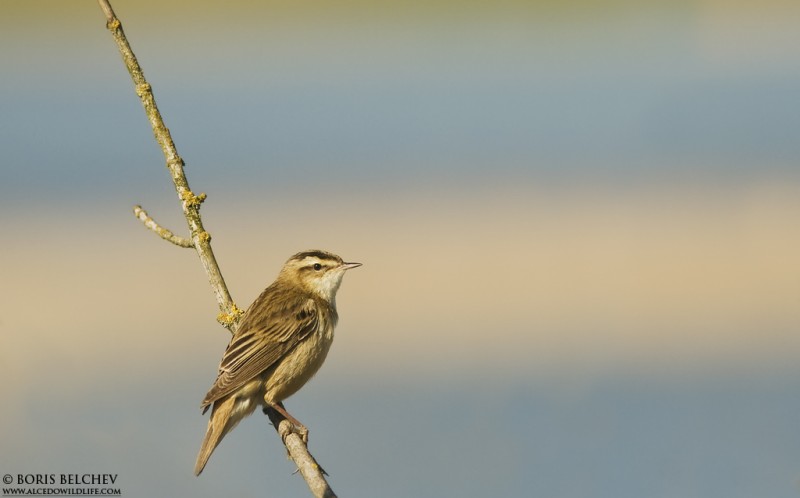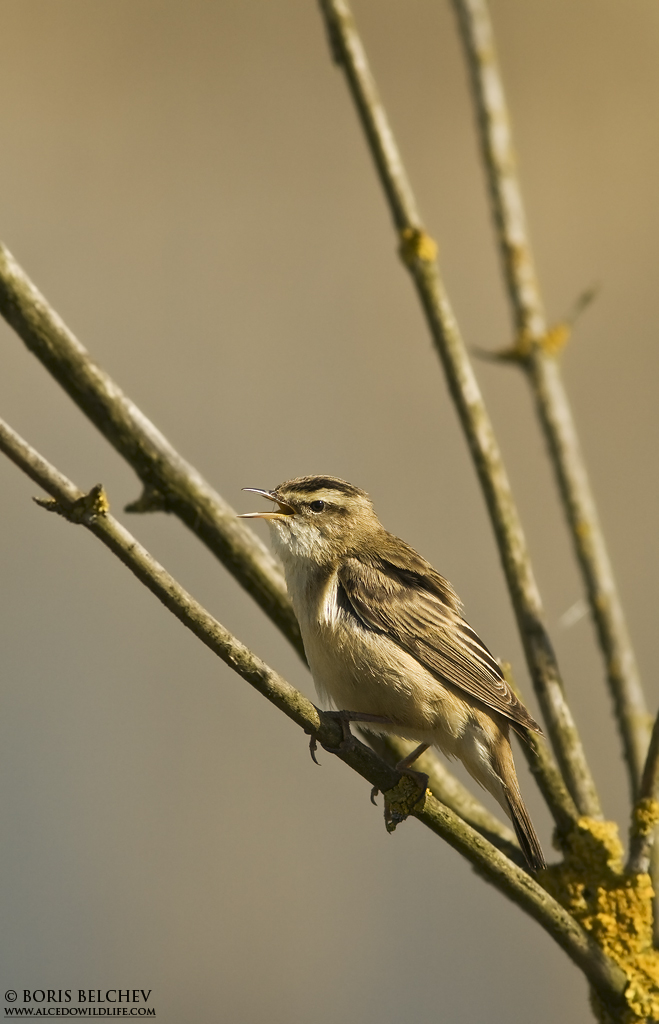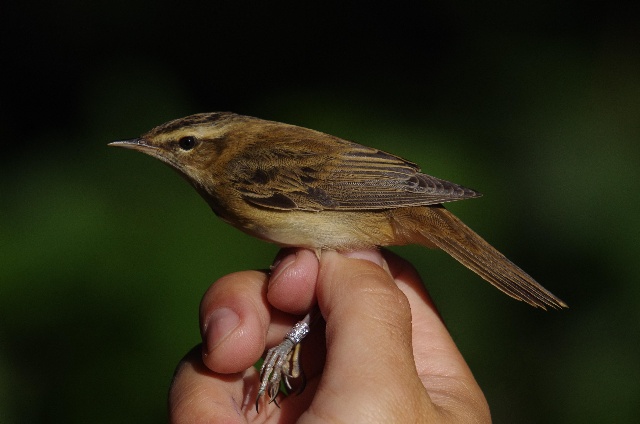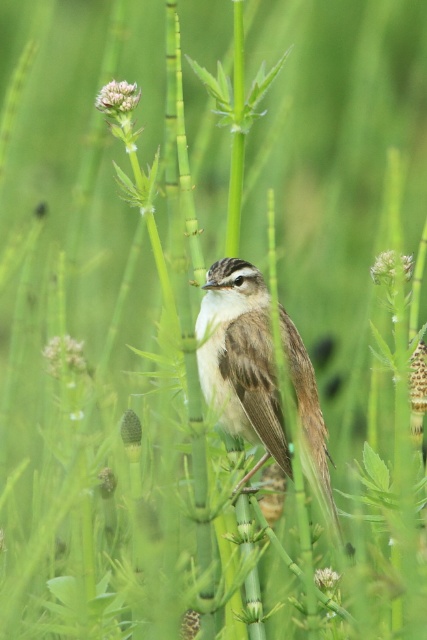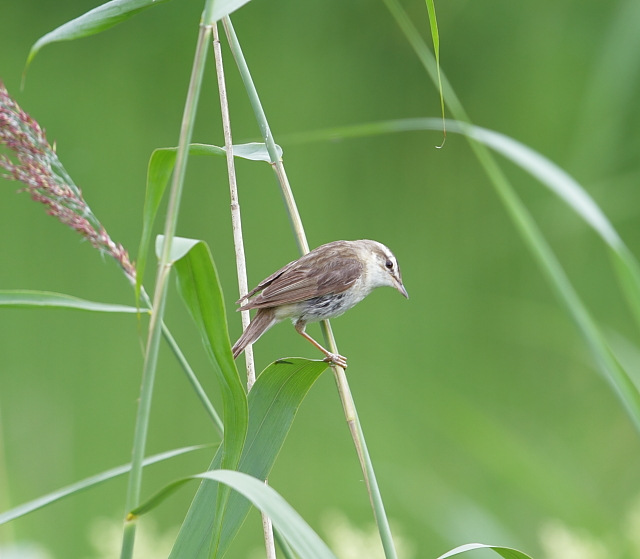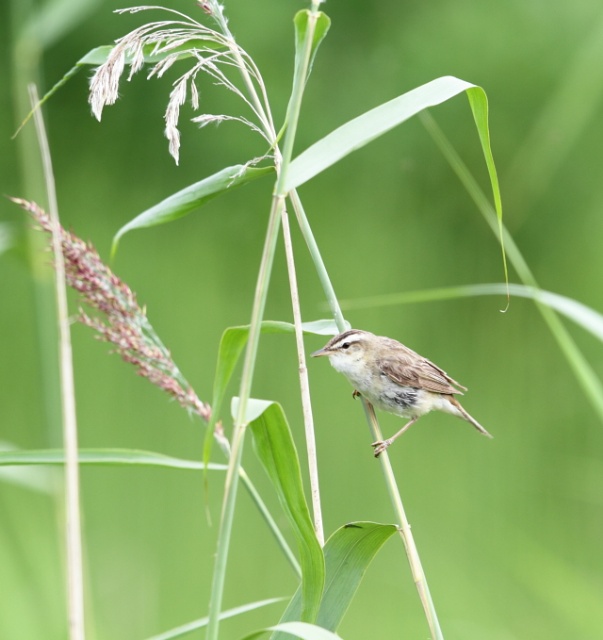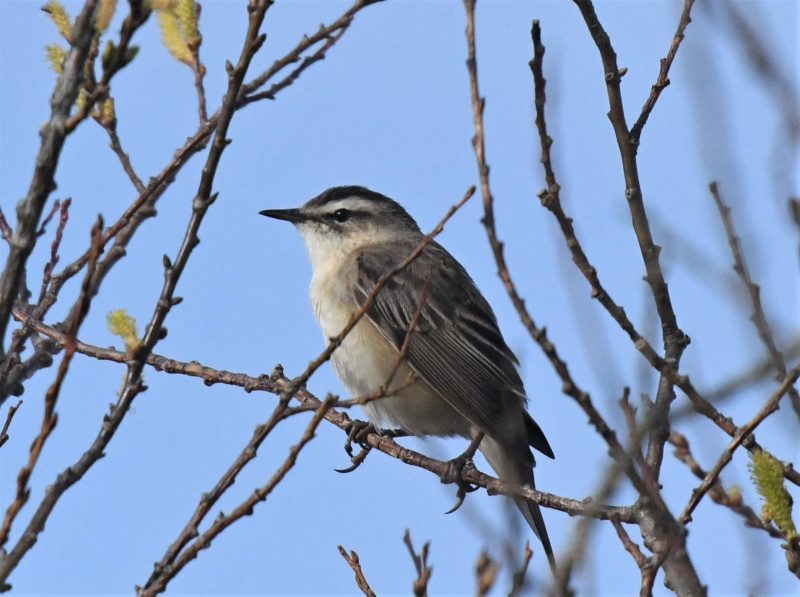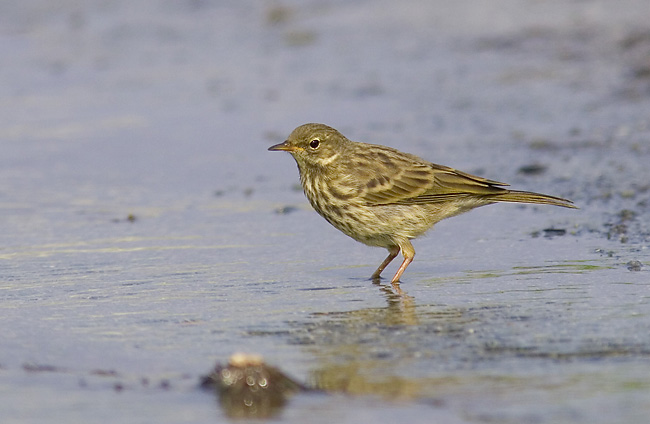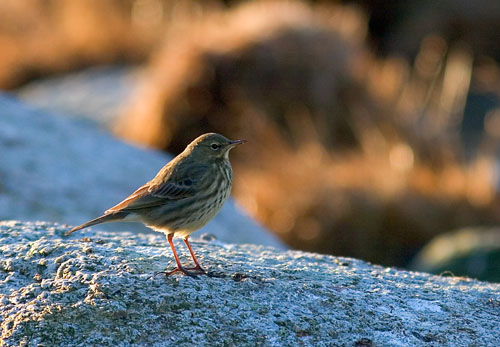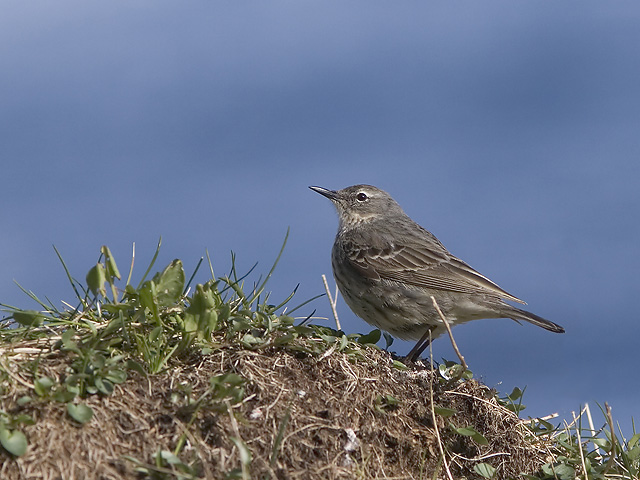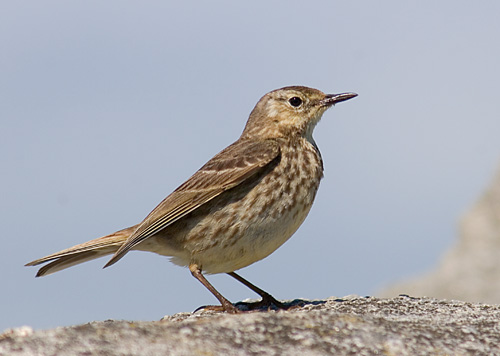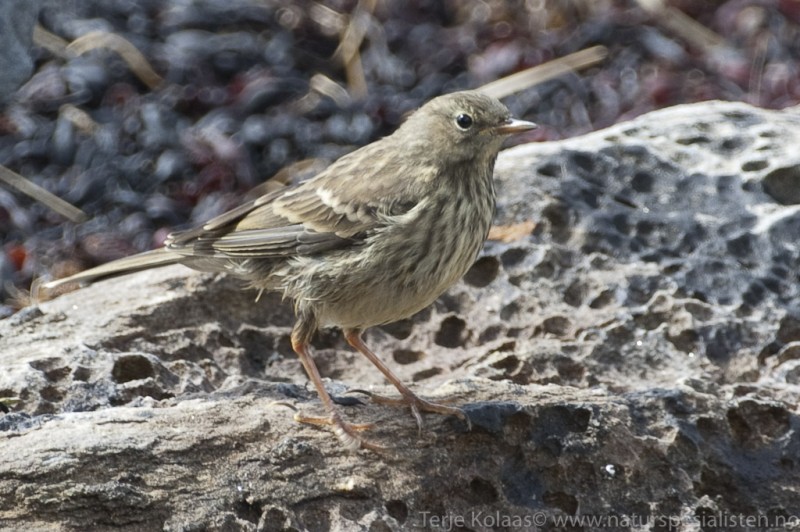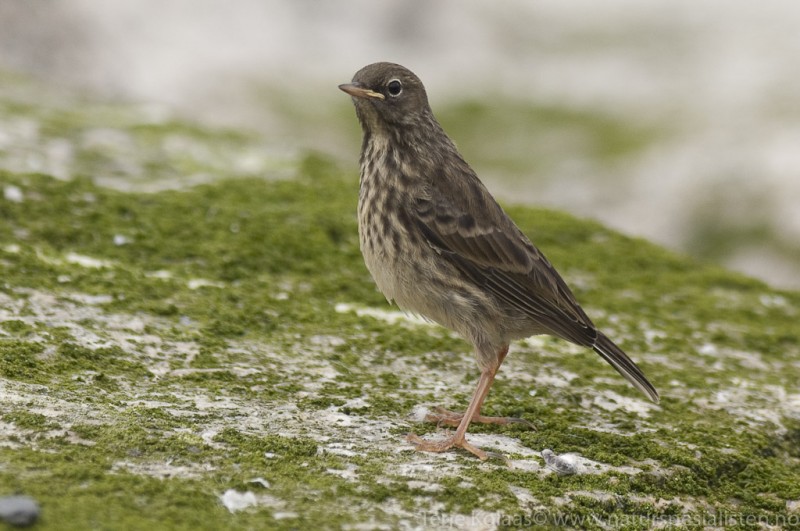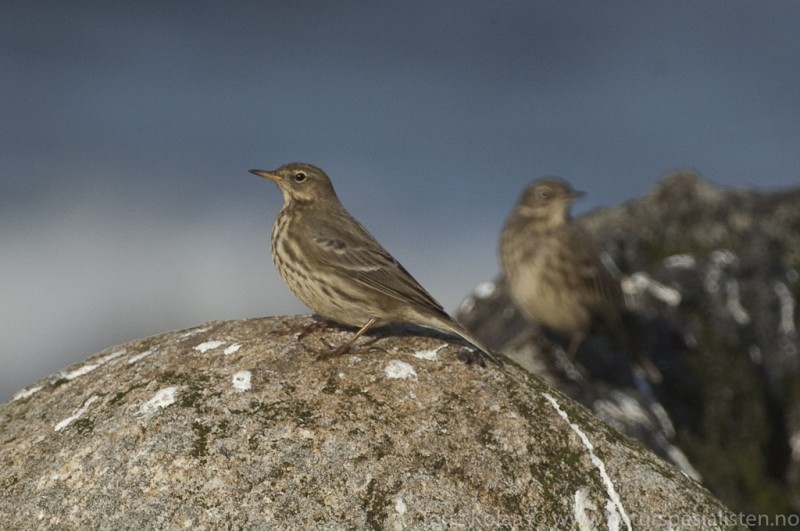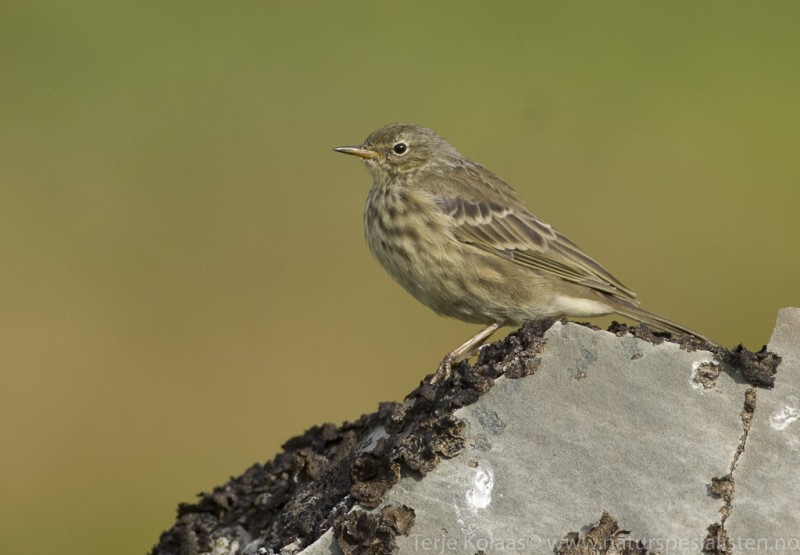Sedge Warbler (Acrocephalus schoenobaenus)
Rock Pipit (Anthus petrosus)
Small and compact, brown warbler with strong supercilium and streaked back. Crown dark with faint streaking, contrasting with broad supercilium. Rump unstreaked and warmer brown than back and tail. Juveniles with faintly streaked chest. Long primary projection. Body shorter and more compact than Reed Warbler. Easiest Achrocephalus to see in the region. Often sings from exposed branch or reed, is inquisitive and not very shy.
Sound:Alarm call a hard "check". Anxiety call a dry and rolling "rrrrr". Song vigorous and varied. A mixture of musical sounds, expert mimicry and characteristic harsh and strident calls. Not as rhythmic and evenly paced as Reed Warbler, but varies tempo a lot.
Song:
Distribution:
Xeno-canto: map
Ecology:Birdlife ecology
Links:
Observation.org Latest observations
Image search Flickr NB! May give other species
CCDark (or brownish) legs and dark bill (in summer). Diffuse, but heavy streaking below, gives underparts a smoky appearance. The whole bird appears darker than other pipits. Outer tail feathers greyish white. Underside of wings dark. Bill noticeably longer and heavier than in Meadow Pipit. Breeding plumage has less streaked underparts, lighter grey upperparts and pink tinge to chest. Very similar to Water Pipit.
Sound:Song very similar to Meadow Pipit but much louder. Starting notes often with masked double accents, giving it a hammering tone. Terminal trill stronger and more pronounced. Flight call a very sibilant, rippling "weesst", more drawn than in Meadow Pipit. Usually given as clearly separated single calls, but sometimes in quick successions like M. Pipit. Alarm call a sharp "tseet". All sounds very similar to Water Pipit.
Song, contact call, song:
Distribution:
Wikipedia: map (se also Xeno-canto below)
Ecology:Birdlife ecology
Links:
Observation.org Latest observations
Image search Flickr NB! May give other species
CCSounds:Recorded by Michele Peron, Jarek Matusiek,http://www.xeno-canto.org ,CC license

 English
English Albanian
Albanian
 Armenian
Armenian
 Bulgarian
Bulgarian
 Catalan
Catalan
 Croatian
Croatian
 Czech
Czech
 Danish
Danish
 Dutch
Dutch
 Finnish
Finnish
 French
French
 Georgian
Georgian
 German
German
 Greek
Greek
 Hungarian
Hungarian
 Italian
Italian
 Latvian
Latvian
 Lithuanian
Lithuanian
 Macedonian
Macedonian
 Norwegian
Norwegian
 Polish
Polish
 Portuguese
Portuguese
 Romanian
Romanian
 Russian
Russian
 Sami : Lule sami
Sami : Lule sami
 Sami : North sami
Sami : North sami
 Sami : South sami
Sami : South sami
 Scientific names
Scientific names
 Serbian
Serbian
 Spanish
Spanish
 Swedish
Swedish
 Ukrainian
Ukrainian


